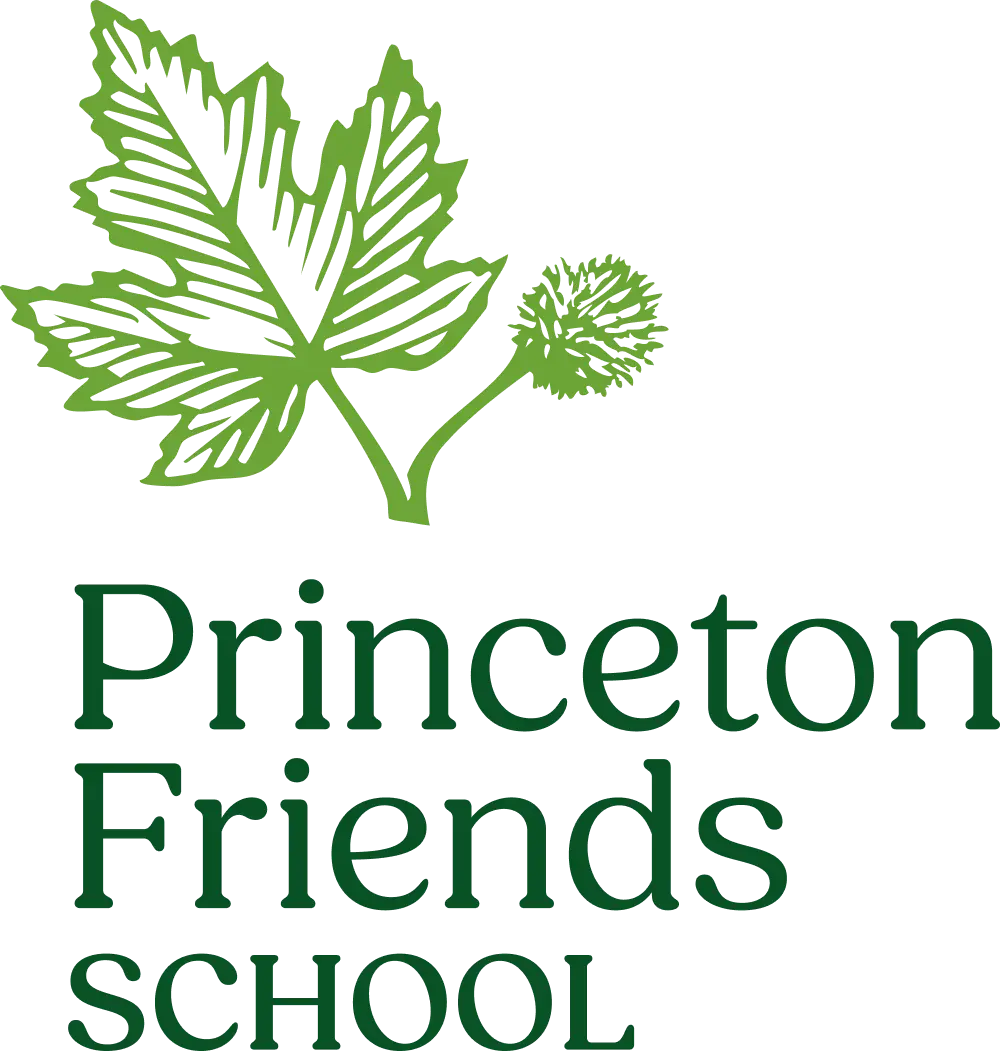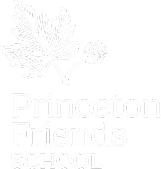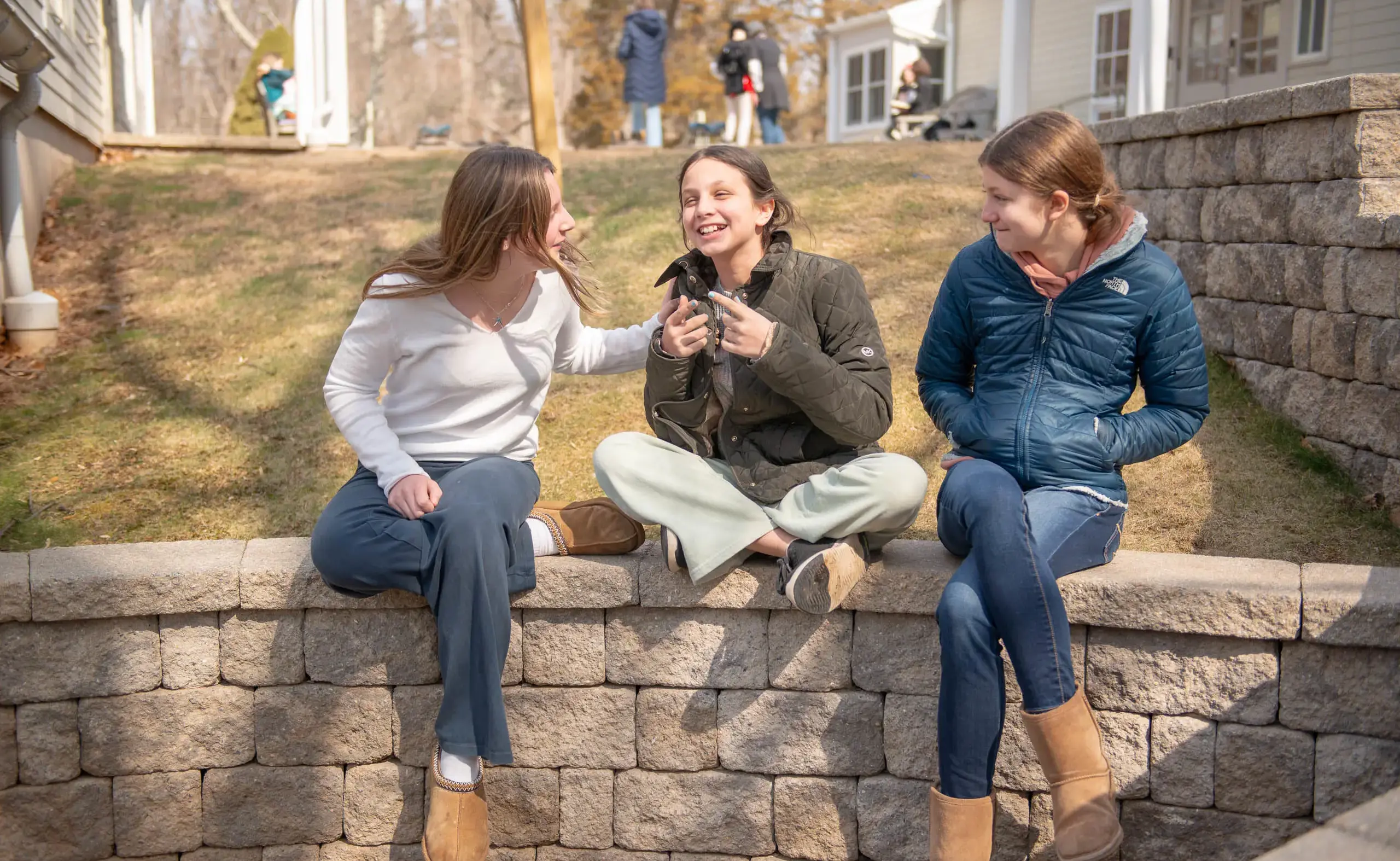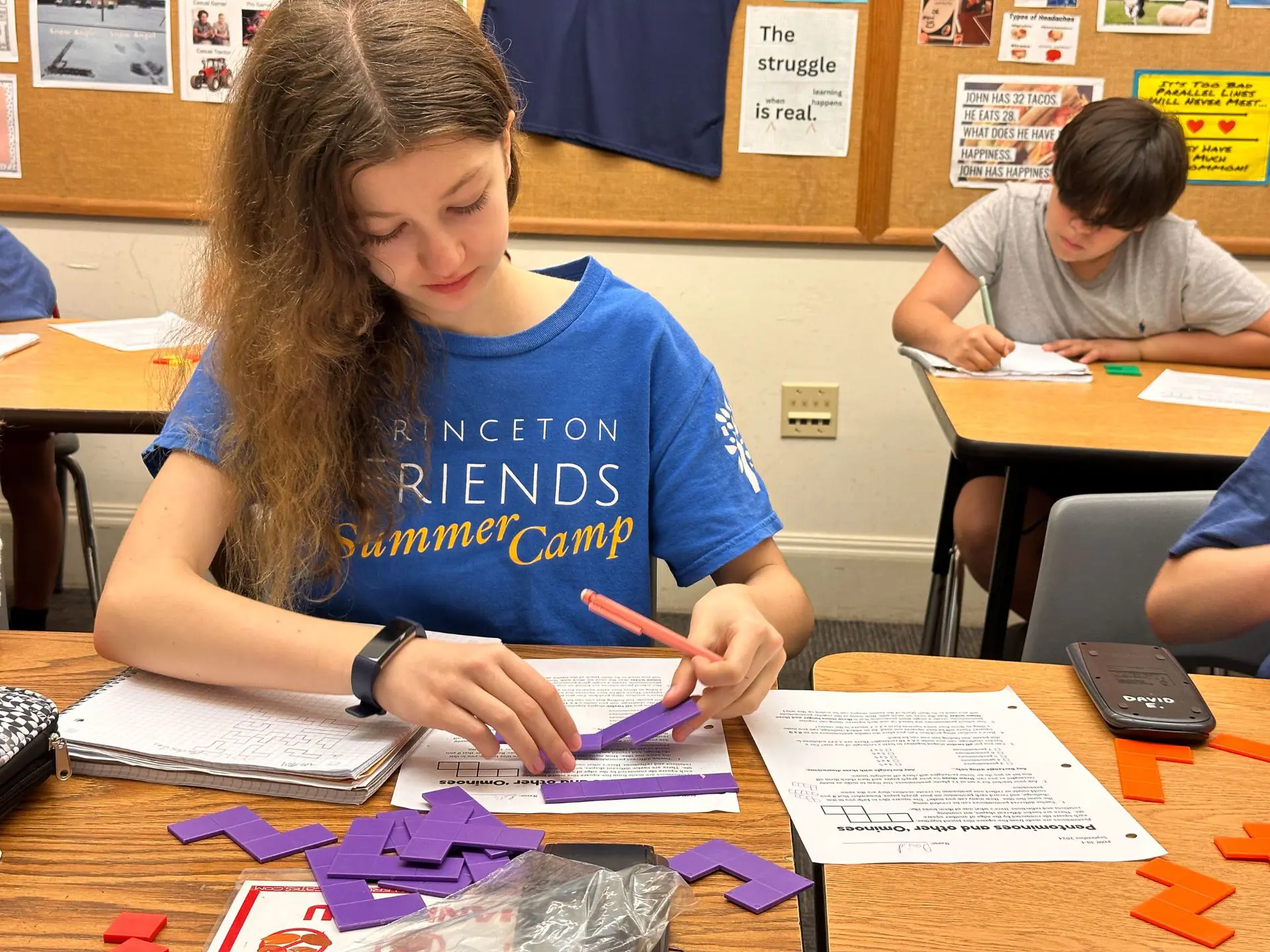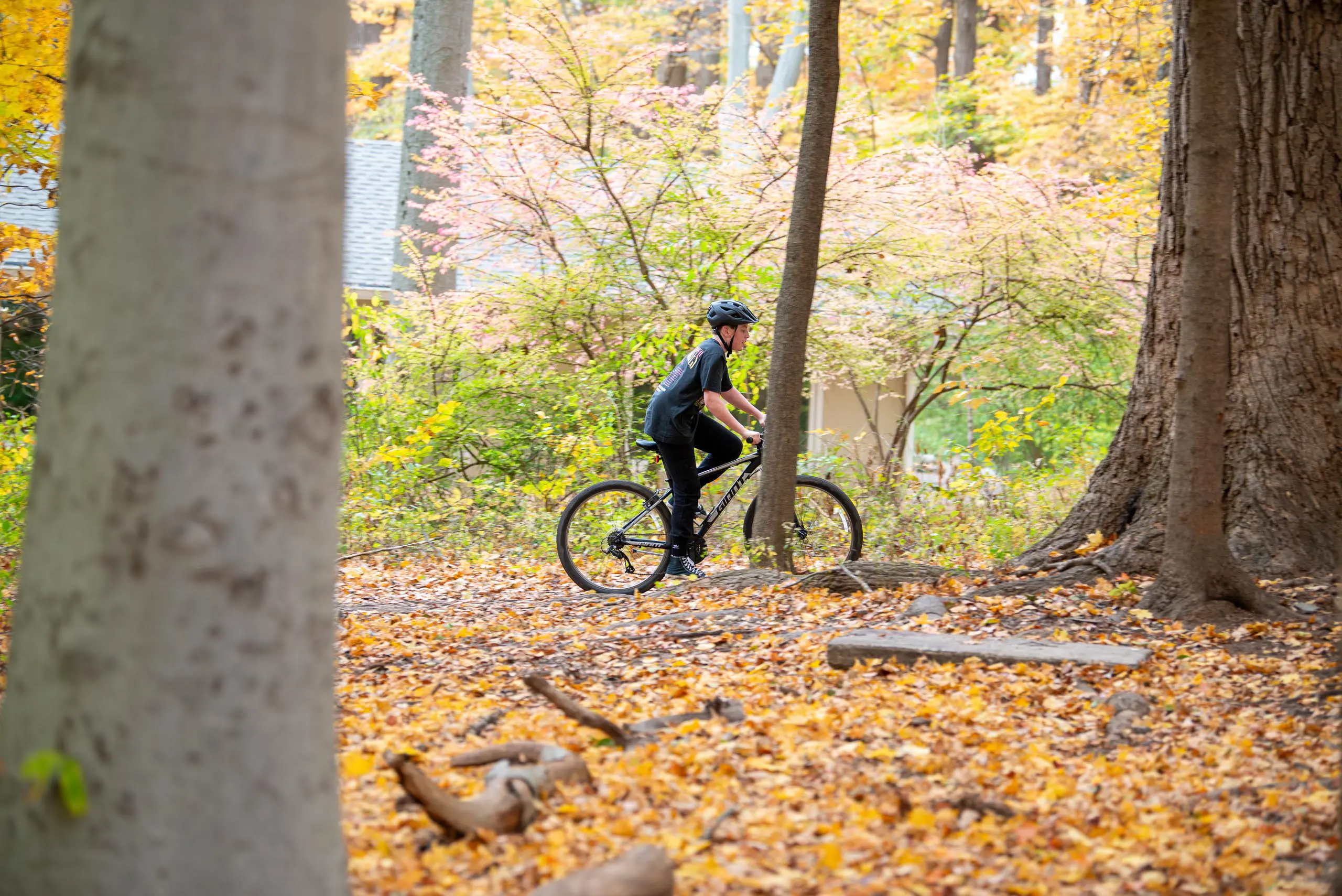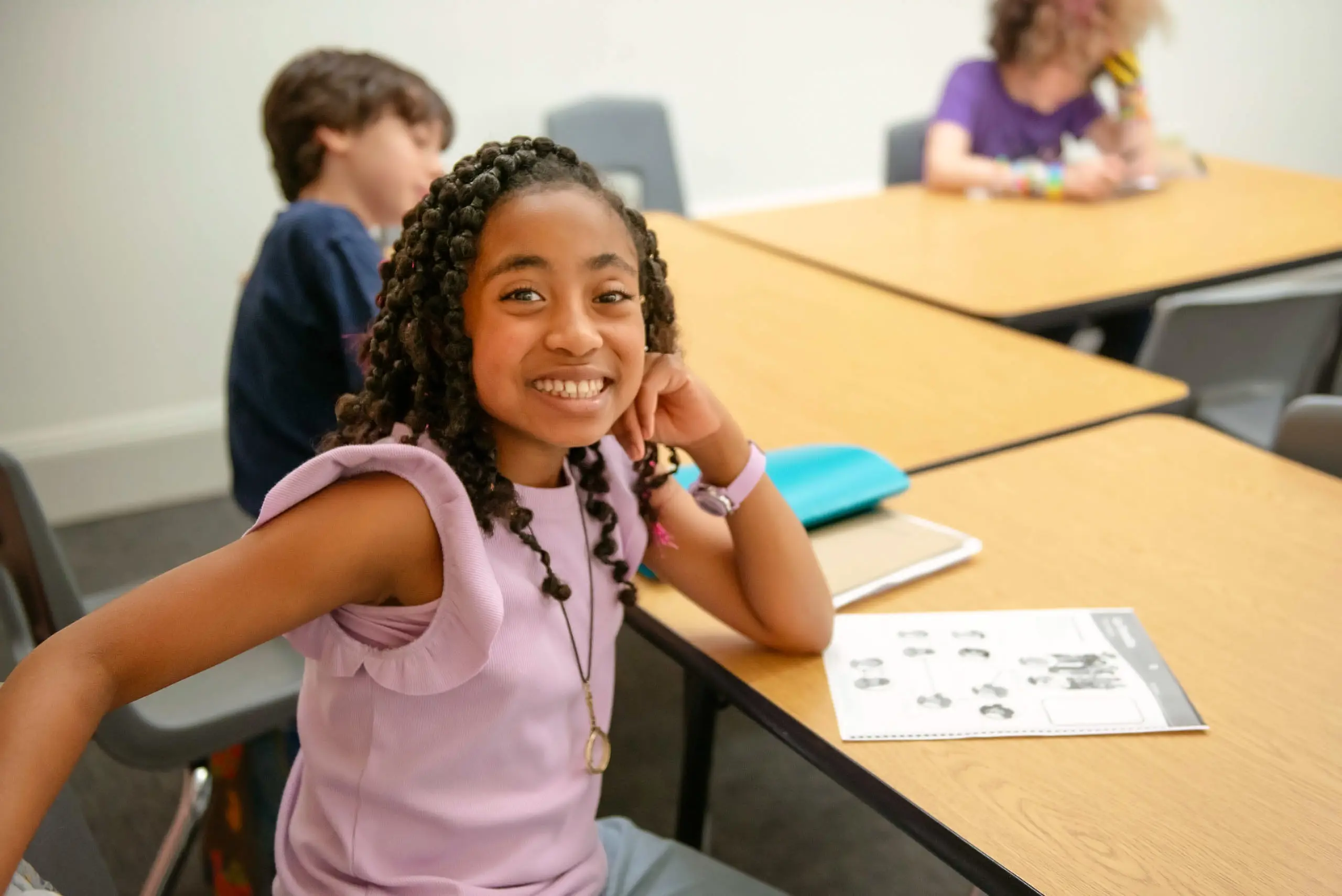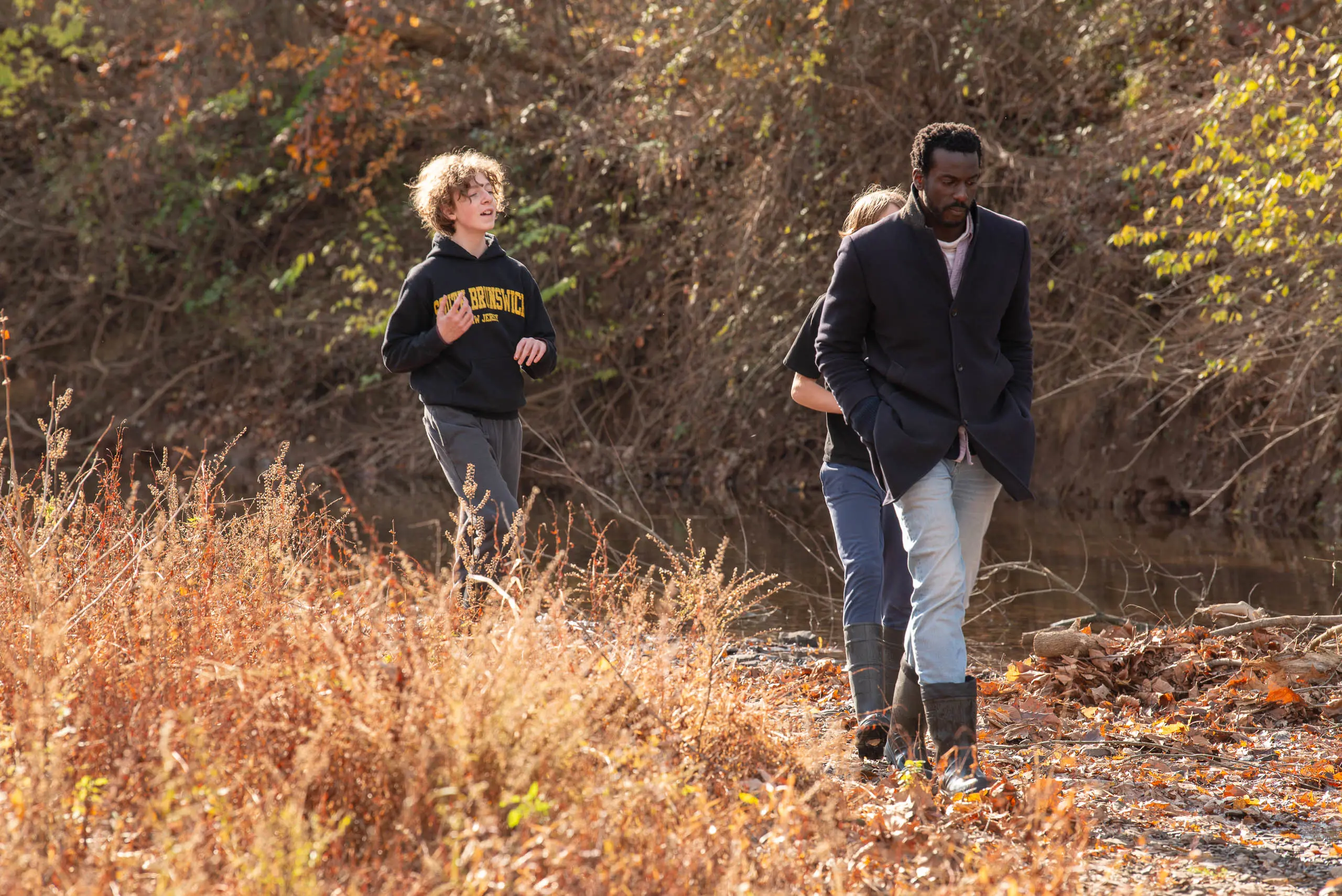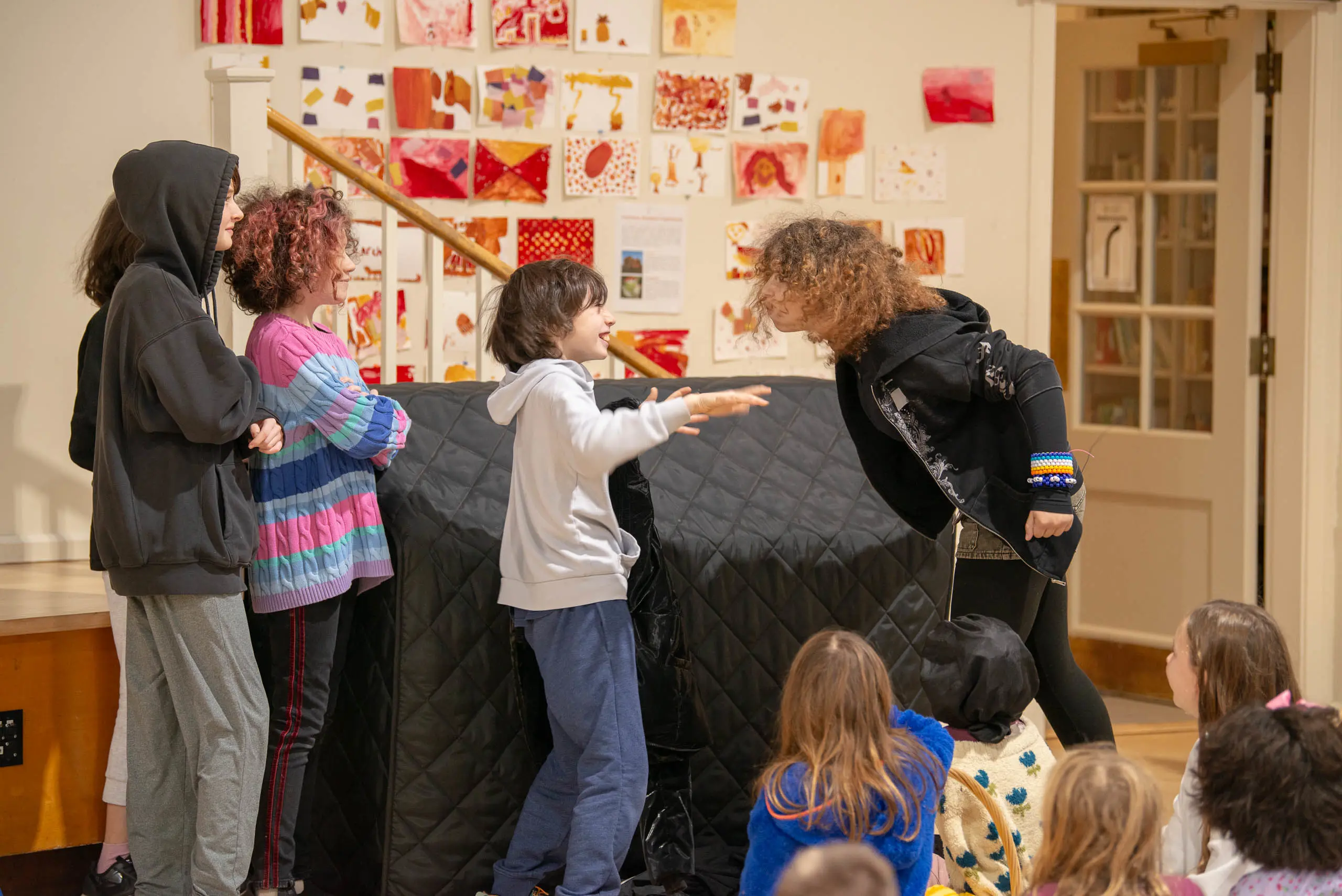Middle School at Princeton Friends School—spanning grades 6 through 8—is a time of deep academic engagement, increased independence, and meaningful leadership.
Our program is intentionally designed to prepare students not just for the rigors of high school, but for a lifetime of thoughtful scholarship, responsible community engagement, and confident self-expression.
Academically, students are immersed in a rigorous and developmentally responsive curriculum. Across all subject areas—literature, writing, math, science, social studies, world language, and the arts—middle schoolers engage with complex questions, hone critical thinking skills, and participate in collaborative, project-based learning. Writing is central across disciplines, with students producing a range of analytical, narrative, and reflective work, culminating in a capstone speech shared at the school-wide Moving On ceremony in eighth grade.
| Read More |
|---|
|
World language studies continue with either Spanish or Mandarin, building toward fluency and global understanding. In math, students engage in increasingly abstract problem-solving, with readiness pathways that support individual pacing. Science includes hands-on experimentation, lab work, and field-based ecological study—often in the nearby Stony Brook watershed, and culminating in a week-long, immersive science expedition at The Island School in eighth grade. Social studies and humanities classes are rich with primary source analysis, debate, and interdisciplinary projects that build research and presentation skills. Students explore history through multiple lenses, making connections to justice, identity, and current events. Throughout Middle School, students continue to build strong social-emotional competencies, including a weekly Taking Care class where students examine real-life topics related to identity, health, relationships, and justice in age-appropriate and reflective ways. Weekly advisory meetings and a culture of close faculty mentorship support students as they navigate the complex and exciting transitions of adolescence. By the time they graduate, they are not only well-prepared for high school—they are equipped to navigate it with confidence, purpose, and a deep sense of who they are.
|
“I often say that Princeton Friends was better than Harvard in terms of educational quality and experience. The idea that people can play and discover in school was revelatory—I didn’t get back to that until my second year in graduate school.”
Dr. Joshua Peek '93, Astrophysicist
Middle School Subjects
| Mathematics |
|---|
|
At Princeton Friends School, our approach to math is rooted in curiosity, collaboration, and confidence-building. From the earliest years through middle school, students are encouraged to see themselves as capable mathematical thinkers who can problem-solve, reason, and communicate effectively. Middle school students engage in a rigorous, inquiry-driven program that includes Prealgebra, Algebra I, and—in some cases—Geometry. Math classes meet daily and emphasize critical thinking, collaboration, and real-world application. Students participate in creative projects such as “Shop My Store,” Desmos art, and a financial literacy course, developing both conceptual understanding and procedural fluency. Our approach balances depth with readiness, providing pathways for enrichment and acceleration when developmentally appropriate. Across all grades, PFS math classrooms are dynamic communities where students share strategies, explain their thinking, and develop strong mathematical identities. Our goal is to ensure that every student leaves PFS not only proficient in math but also empowered to approach future challenges with confidence and curiosity. Problem of the WeekStudents in fourth through eighth grades engage in Problem of the Week (POW). These complex problems are fun to do, and each one illustrates an important concept in math or an important moment in math history. Pascal's Triangle is a typical example, as it begins with just adding whole numbers. Its repetitive nature and rapid growth often fascinate younger students. Yet this same problem offers older students an opportunity to work on binomial coefficients, combinations, and advanced topics in number theory. New POW’s are introduced in math classes about once a month, and students are encouraged to continue to tackle them during free time at school or with their families at home. The problems that are presented are often related to topics that students are studying in other subject areas, and through these problems, students encounter mathematical concepts that aren’t normally part of an elementary mathematics curriculum. Above all, POW teaches students that mathematics is a problem-solving undertaking, that many approaches are valid in working toward a solution, and that working with others can be a lot of fun and often leads everyone to a better understanding of the concepts at hand. Try one out for yourself! POW 38-1 Pentominoes and other 'Ominoes.pdf |
| English |
|
At Princeton Friends School, our English program supports students in becoming thoughtful readers, expressive writers, and confident communicators. With an emphasis on storytelling, poetry, and inquiry-based learning, students explore language as a powerful tool for self-expression, reflection, and connection to the world around them. In 6th and 7th grades, students begin to analyze texts more closely, especially nonfiction, learning how authors structure information and use specific techniques to convey meaning. They use analytical tools such as close reading and writing-as-thinking strategies. The weekly Article-of-the-Week routine builds reading comprehension, background knowledge, and critical thinking through annotation, discussion, and structured written responses. Students write multi-draft essays connected to academic themes or personal interests, continue developing grammar and vocabulary through structured word inquiry, and deepen their freewriting practice. Storytelling and poetry remain important parts of the curriculum, giving students opportunities to experiment with voice and style. In 8th grade, students refine their skills and apply them to more complex, independent work. They explore tone, personal voice, and writer’s purpose in both analytical and creative writing. The Article-of-the-Week routine expands to include more challenging texts, often requiring synthesis across sources. Grammar and sentence variety are emphasized to support clear, effective communication. Multi-draft essays continue, and in the spring, students craft Departing Remarks—a personal reflection that is read aloud to the school community during the Moving On ceremony. Many students also pursue long-term independent writing projects, often in fiction or memoir, and share their work with peers. Throughout all grades, our approach fosters a love of language, encourages authentic expression, and supports students in developing the tools they need to think critically, write with purpose, and tell their own stories with clarity and heart. |
| Social Studies |
|
At Princeton Friends School, social studies in grades 4 through 8 emphasizes critical thinking, empathy, and active citizenship. Social studies education provides learners with the knowledge, skills, attitudes, and perspectives needed to become active, informed, and contributing members of local, state, national, and global communities. Integrating social sciences and humanities, social studies prepares students to make informed decisions in a culturally diverse, democratic society within an interdependent world. Rooted in Quakerism, anchored to our annual Central Study theme, and connected to what students are experiencing in the world today, our thematic and inquiry-based approach prepares students to critically consume and produce information in our complex and rich media landscape. We use a two-year curriculum cycle in grades 4–5 and again in grades 6–7, allowing students to explore a range of historical time periods and themes in greater depth. This cyclical approach supports multi-age learning, enables deeper cross-grade collaboration, and allows us to revisit essential questions from multiple perspectives over time. |
| Literature |
|
Each term, students in 4th-8th grades have two class periods per week dedicated to the study of literature. For the fall, teachers choose a text to start the year. In winter and spring terms, we provide a list of titles, and students are able to choose what book(s) they are interested in studying. Other elements of the literature program are as follows:
|
| Science |
|
Science at Princeton Friends School is an inquiry-driven, hands-on program that nurtures curiosity, critical thinking, and a sense of responsibility toward the Earth. Across all grades, students engage deeply with the scientific process—observing, questioning, experimenting, analyzing, and reflecting—while developing essential academic skills that prepare them for future study. Middle school science deepens these experiences with immersive, real-world studies that emphasize application and impact. In Grades 6 and 7, students conduct long-term research on the Stony Brook ecosystem, exploring biology, chemistry, and environmental science while producing comprehensive scientific reports. In 8th grade, physics and chemistry come to life through active learning—like designing bicycle courses to explore physics concepts or testing chemical reactions in lab investigations. Throughout all grades, the program emphasizes project-based learning, collaboration, and real-world relevance. Students are encouraged to express their understanding through diverse formats—scientific reports, art, engineering challenges, debates, and group presentations—while developing fluency with scientific vocabulary, tools, and methods. Cross-curricular collaboration is a regular feature, as science classes work with other departments to enrich inquiry and promote deeper understanding. By integrating environmental stewardship, interdisciplinary learning, and joyful exploration, science at Princeton Friends School empowers students to be thoughtful observers, responsible citizens, and confident problem-solvers. Eighth Grade Science TripEach year, our 8th graders embark on an exciting week-long journey to The Island School in Eleuthera, The Bahamas. This immersive experience offers students a unique opportunity to deepen their understanding of sustainable living and environmental stewardship through hands-on learning, building on the science concepts they have explored throughout their time at Princeton Friends School. Working closely with The Island School community, including researchers from the Cape Eleuthera Institute, students study the environment in real time. They explore mangrove creeks, track sea turtles, collect data on crab habitats, scuba dive among coral reefs, and engage in many other immersive activities. These experiences foster a firsthand understanding and intimate connection to the natural world, inspiring responsibility and a lifelong love of learning. For a preview of this transformative program, visit www.islandschool.org. |
| World Langauge (Spanish & Chinese Mandarin) |
|
As a progressive school, our World Language program is rooted in the ACEFEL framework—Academic, Cultural, Emotional, Functional, and Linguistic—which supports a whole-child, experiential approach to language learning. ACEFEL guides us in fostering confident, expressive, and globally aware language learners through storytelling, role-play, cultural exploration, and interdisciplinary learning. To complement our ACEFEL foundation, we incorporate key elements of the ACTFL (American Council on the Teaching of Foreign Languages) framework. Specifically, we use ACTFL’s three modes of communication—interpersonal, interpretive, and presentational—as well as its proficiency guidelines to help track student growth over time. These tools provide consistency, clarity, and measurable benchmarks that support our commitment to both individualized learning and high standards in language development. Together, ACEFEL and ACTFL allow us to blend joyful, student-centered learning with clear expectations for growth and real-world communication. |
| Art |
|
Drawing from the work of Jillian Hogan, Lois Hetland, and Diane B. Jaquith, the art curriculum at PFS seeks to foster eight overarching critical thinking skills that are involved in the process of creation:
|
| Music |
|
At Princeton Friends School, music education is a joyful, immersive journey rooted in exploration, creativity, and community. From the earliest grades through middle school, students engage in a developmentally grounded, culturally responsive music curriculum that nurtures both musical literacy and expression. Music classes in the younger grades combine John Feierabend’s “First Steps in Music” curriculum with elements from Orff Schulwerk, while music classes in the upper elementary grades draw from Orff Schulwerk and the Kodály approach. Music in the Middle School expands its focus beyond music literacy and creation to examine different facets of music history and culture. Each student in 1st-8th grade has their own “Music Binder,” a collection of lyrics that has been assembled carefully over the years to include a rich selection of folk and contemporary songs, ballads, rounds, and holiday music. Students sing from the Binder in class as well as during Friday Community Time. Songs are used as jumping-off points to talk about social justice, the environment, and social-emotional topics. Each year, songs are added to the binder in connection with the Central Study theme. |
| Electives |
|
Whether it’s yoga for athletes, aerial movement, chimes, forest bathing, trail biking, or sewing and designing custom stuffed animals, students have the chance to dive into creative, physical, and skill-based activities that stretch their minds and bodies. Many electives take place outdoors, using our woods and gardens as extended classrooms. Middle School students even have the opportunity to design and lead their own electives, pending faculty approval. Past student-led courses have included drawing classes and an upcycling art workshop—just a few examples of how leadership and creativity are encouraged at every turn. Our flexible approach to electives across Physical Education, the arts, and enrichment programming ensures that students are not only engaged, but empowered to shape their own learning journeys. |
